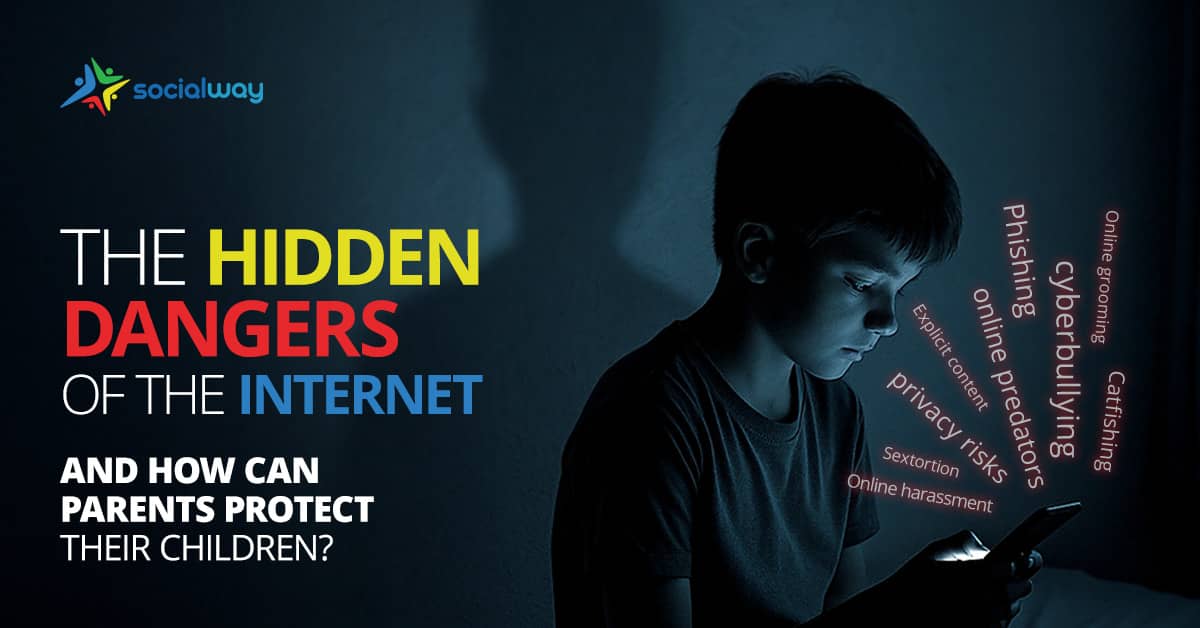“I thought he was safe in his room.”
This chilling statement from the Netflix documentary Adolescence resonates deeply with many parents. It reflects a common misconception—assuming that a child is safe simply because they are physically at home. The internet, however, has no walls, no locked doors, and no physical barriers. Instead, it serves as an open gateway where cyberbullying, online predators, harmful content, and privacy risks lurk in plain sight.
The Hidden Dangers of the Internet
The digital world offers incredible opportunities for learning, creativity, and social interaction. However, it also presents risks that can have severe consequences for young users. Here are some of the most alarming threats:
Cyberbullying: The Silent Epidemic
Bullying has existed for generations, but with the internet, it has taken a more insidious form. Cyberbullying allows harassment to follow children home, turning what should be a safe space into a battleground. Hurtful messages, rumors, or manipulated images can be spread instantly to a large audience, leading to anxiety, depression, and even tragic outcomes.
Online Predators: Wolves in Sheep’s Clothing
The anonymity of the internet enables predators to disguise themselves as friends, peers, or mentors. They gradually gain a child’s trust, grooming them over time before manipulating or exploiting them. Many cases start innocently—through social media, gaming platforms, or chat apps—but can quickly escalate to dangerous situations.
Harmful Content: The Unseen Influence
The internet hosts a vast range of content, and not all of it is appropriate for young audiences. Children can be exposed to material promoting self-harm, eating disorders, violence, or extremist ideologies. These influences can shape their perceptions and behaviors in dangerous ways, often without parents realizing it.
Privacy & Data Risks: The Digital Footprint
Young users often share personal information online without understanding the consequences. Many platforms collect vast amounts of data, which can be misused, sold, or stolen. A single misstep—such as sharing a location, phone number, or school name—can have lasting repercussions.
How Can Parents Protect Their Children?
Protecting children online requires active involvement, education, and digital literacy. Here are some key steps parents can take:
1. Open Communication is Key
Encourage children to talk openly about their online experiences. Make them feel safe in reporting anything that makes them uncomfortable. Establishing trust is crucial so they turn to you if something goes wrong.
2. Set Digital Boundaries
Establish screen time limits and rules about social media usage. Monitor what platforms they use and discuss the importance of online etiquette and digital respect.
3. Utilize Parental Controls
Most devices, apps, and internet service providers offer parental control features. These can help filter inappropriate content, track activity, and limit screen time. Familiarize yourself with these tools and use them effectively.
4. Educate & Empower
Teach your children to recognize online threats. Discuss topics like cyberbullying, phishing scams, and how to handle unwanted contact. Encourage critical thinking about what they share online and who they interact with.
5. Stay Updated with the Digital World
The internet evolves rapidly, and new platforms, trends, and risks emerge constantly. Stay informed about the latest apps, games, and online challenges your children might encounter. Knowledge is power when it comes to online safety.
Technology Should Be a Tool for Growth, Not a Threat
The internet is not inherently bad—it is a tool that can be used for both good and harm. By staying engaged and proactive, parents can help children navigate the digital world safely, ensuring that technology enriches their lives rather than endangering them.
We all have a role to play in safeguarding the next generation. Let’s work together to create a safer online environment for our children.
📢 Share this article to spread awareness and help more parents protect their children online!


